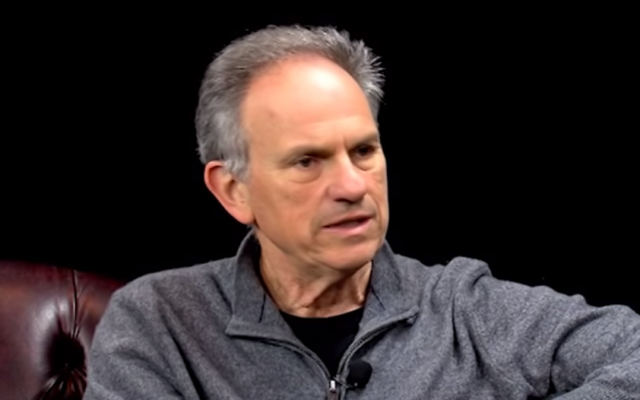Israeli Director Explores Israeli Fears
Avi Nesher is one of Israel’s most popular and most respected directors. His most recent film, “The Other Story,” had five screenings at this year’s Atlanta Jewish Film Festival.
Avi Nesher is one of Israel’s most popular and most respected directors. This past year the Israeli government honored him with its Lifetime Achievement Award. His most recent film, “The Other Story,” had five screenings at this year’s Atlanta Jewish Film Festival and is in the competition for the festival’s best feature length fiction film.
It has already earned him a best director award from the Israel Film Critics
Association and is a smash hit there, attracting audiences from a broad cross-section of Israeli society.
One of the reasons for its appeal is the even-handed way the film handles the story of a romance between a secular Jewish woman, who has become enamored of the observant life, and a newly-minted, ultra-Orthodox man. Much of the plot turns on the efforts of her family to thwart the relationship, an effort that illustrates the deep tensions that have developed in Israeli society. The growth of influence by religious Jews, particularly the ultra-Orthodox, has become, in a sense, the other story, and a major issue.
The AJT sat down with Nesher to talk about this topic and its influence on the film.

AJT: How important, in Israel, is this split between secular and religious Israelis?
Nesher: We are very, very afraid that the religious entities are becoming more and more powerful. Israel is now a country which is battling this process which might lead us close to a theocracy. Secular people see the religious as the other side, as the other story, and very often as the enemy.
Israel is much more threatened by this than by the conflict in the Arab Middle East. Right now, this internal division within Israel is the biggest problem Israel is facing.
AJT: One of the unusual aspects of this film is the way you don’t seem to take sides in this dispute.
Nesher: I am always highly suspect when I think that my side is right, and the other side is wrong. You know things are never black and white. And when I talk to my religious friends, they are just as terrified of us secular people as we are terrified of them. And I thought it would be great if I made a movie that would address this fear we each have of the other.
And this really got a dialogue going, and it’s astonishing. This movie sold five times more tickets in recent months than its nearest rival. It sold more tickets than any of the big American movies that are playing in Israel.
It’s not just a hit; it’s a huge, huge hit. It has finally gotten Israelis talking about the elephant in the room and the elephant in the room is that we’ve got people who believe not only in different things but in conflicting things.
You know, this movie is not about my story. It’s about the other story. I get uncomfortable around very religious people. And I feel ashamed that I get uncomfortable. It’s because of the way Israeli politics has shaped us. We have become each other’s enemies. And, of course, you know people say that that’s how the second temple collapsed 2,000 years ago, by internal strife.
AJT: Of course, dealing with conflict is not just an Israeli issue. America is a very divided nation and so are many others around the world.
Nesher: Which is again why this movie has been so successful. I mean this movie has been shown in more than 100 festivals just in the last few months. It’s opening theatrically in this country in the spring, which is a rarity for Israeli cinema. I mean my next stops after this are the festivals in Zurich, Paris and Berlin. People understand this movie in their own terms.
It’s about the way people view the other; every society has the other. We are in the American South and in the American South you have had the other for a couple of centuries before something was done about it.
AJT: What’s your next project?
Nesher: I’ve just come from Los Angeles, where I’ve had discussions to make an American movie. I have not done so in a long time, and suddenly I like the idea because we talked about the growth of anti-Semitism. I think there’s a very powerful sense of the rise of anti-Semitism in this country. This is something that cinema needs to address. There has not been a film like “Gentleman’s Agreement,” which was made in the late 40s, for a long, long while. I think American Jews have taken things for granted. They’re comfortable in this country, and as we saw in Germany in the last century, this situation can turn around in a jiffy. I’ve been presented with some projects that address this and this is something I’m very interested in.
AJT: Any chance you might be filming your next American film in Atlanta?
Nesher: Well it just so happens that one of the stories I’m really interested in takes place in the South. So, if that works out, that would be lovely.




comments